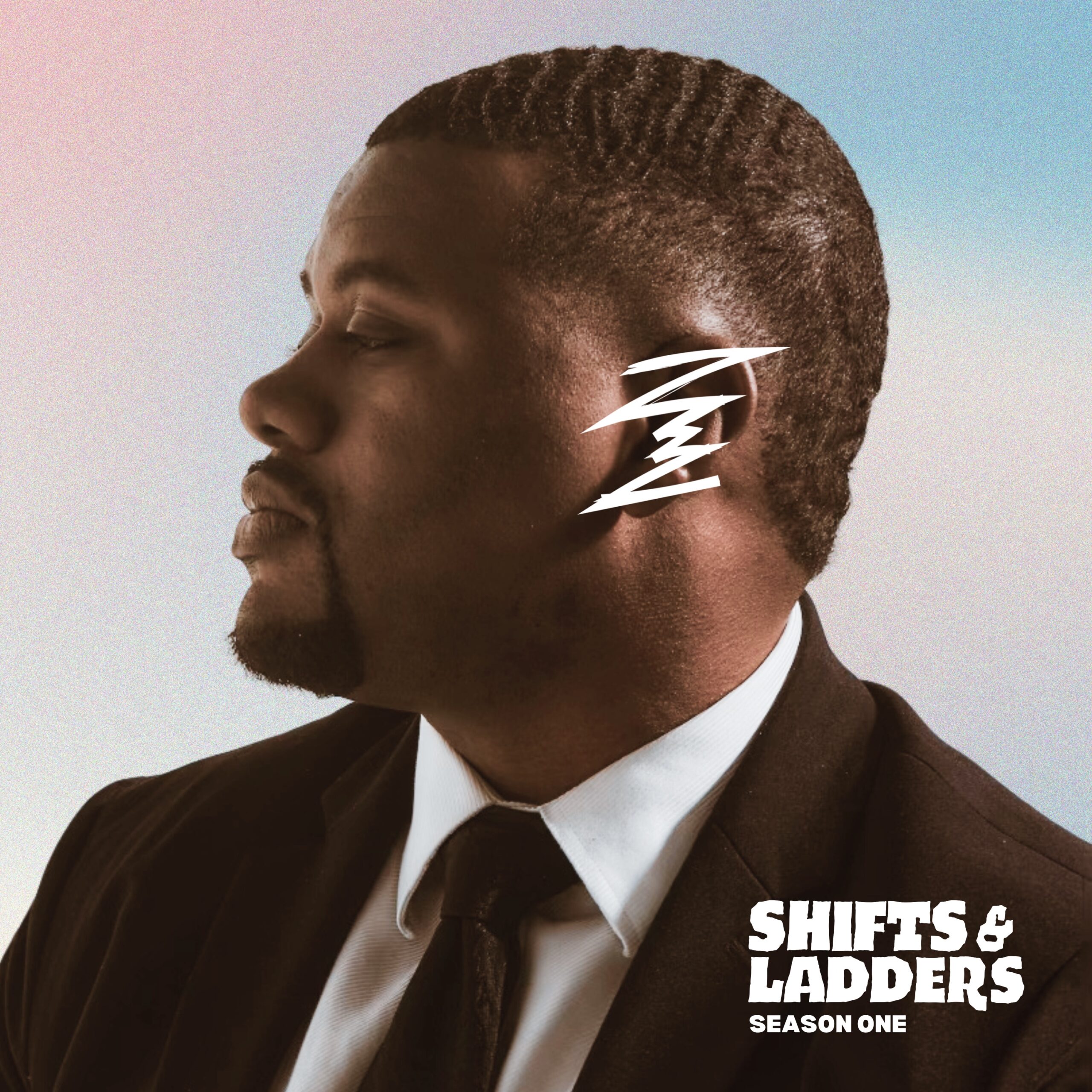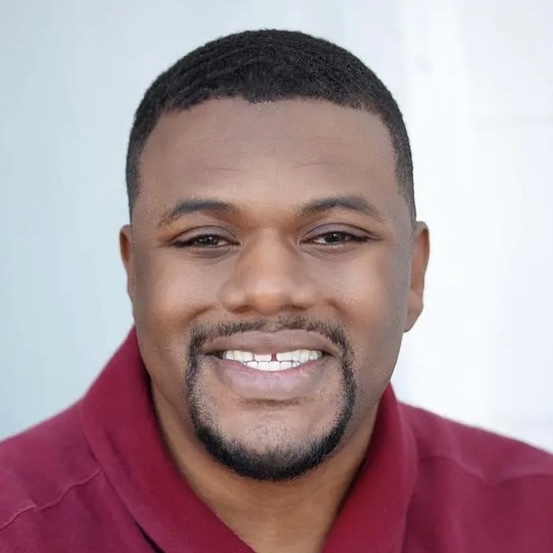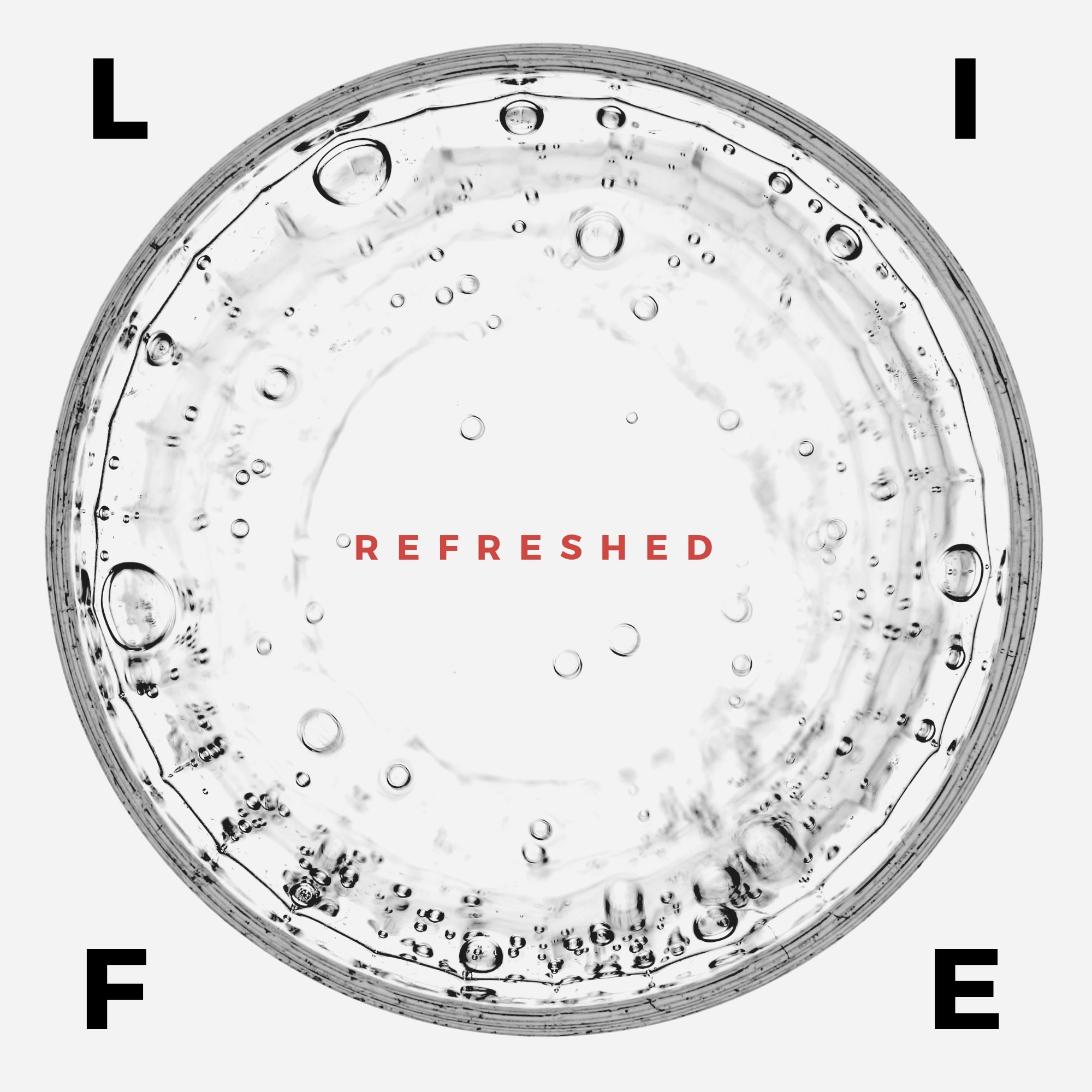Episode Transcript
[00:00:00] So what if I told you that all the hard work, late nights, early mornings that you had engaged in to get a particular outcome done actually resulted in nothing?
[00:00:11] You know, we live in a culture these days that actually glorifies the fact that we are early risers, that we don't sleep, that we don't rest. But what if the key to your success was actually not glorifying the grind and waking up early and late, but recognizing and trusting that unless the Lord builds the house, the builder's labor is in vain? That's Psalm 27, actually was written by Solomon, the most wealthiest, richest man to have ever lived. He wrote this, and he realized that a man who built one of the greatest temples in the world admitted that with skill, without surrender leads to exhaustion, and without God, there will be no glory. So in today's pod, we're going to not just talk about building, but what it's like to be built. What it's about being restful, about trusting, about building legacy. Because God builds. He doesn't just build projects. He builds up people. Welcome to shifts and ladders. Okay, so we're talking about Psalm 120. It's a great psalm. Like I said, it's written by Solomon, but it's considered the song of ascent. So it's a song that is sung by travelers that are going upward beyond Jerusalem. So really what they go there do to do is get aligned with the Lord. Not just spiritually, but there's a physical part, there's an emotional relation, There's a part where things come together because Jerusalem is the anchors, the headquarters, if you will, for the faith.
[00:01:39] So every step higher, going up to Jerusalem, because Jerusalem's up on a hill, meant getting closer to God, not just in geography, but independence. So Solomon, who is the king of David and the architect of the temple, starts this psalm off with the revelation that we, most of us who are building forget. And it says this. Unless the Lord builds the house, the builders labor in vain.
[00:02:07] Unless the Lord watches over the city, the guard stands. The guard stand watch in vain. He's saying you can pour your heart into it, and what into it is your business, your endeavors, your projects, your ministry, your home. But if it's not built with God, it will eventually break under you and break you. There's no hustle in heaven, okay? But the hustle and the work without heaven's blessing can lead to a burnout.
[00:02:38] And motion without meaning can lead to anxiety and feeling like you're on a treadmill. I don't know if anybody really Likes being on a treadmill. I'm one of them. I hate them. I hate them. Because you're running so fast but actually getting nowhere, Your body has the effects of what it looked like running two or three miles, but honestly, you didn't run two or three miles. You actually ran in place. Isn't that crazy?
[00:03:09] But here's a part here that I want to kind of lock in on verse one and two for a minute. You and I live in a world that rewards overextension, okay? Taking initiative, showing your value. Keep grinding, Stay up, stay past five and get the work done. But this is the other part. In verse two, I want to say Solomon says, in vain, you rise early and stay up late toiling for food to eat.
[00:03:37] For he grants sleep to those he loves.
[00:03:41] Another scripture says he gives sleep to his beloved. This is the Lord. So God's not shame and hard work. I want to make sure that we're clear about this.
[00:03:50] Bible says hard work leads to profit. All hard work leads to profit, but slack hands lead to poverty. That's one of Solomon's proverbs as well. But what he's calling out is striving without surrender.
[00:04:03] Okay?
[00:04:05] God's rest is actually trust in God.
[00:04:09] I'm gonna say that again. God's rest is actually trust in God. It's a declaration that says, I'm not holding this together.
[00:04:18] He is, and I'm submitting this to him because I can't handle it. All right? The word sleep in Hebrew actually carries the meaning of peace and security.
[00:04:29] So when God grants sleep to those he loves, he's promising you and me something that hustle can never provide or deliver.
[00:04:39] Here it is. Lock in peace. That doesn't depend on performance. That y'. All. That's a blessing to me because sometimes what I find is I have to make peace happen.
[00:04:52] I have to be peaceful. What does that even look like? If you don't have peace on the inside of you, how in the world are you going to expect to have a peaceful environment for yourself? Okay, now, that's not the rest of the psalm. We got some more to go. And it's a short one, too. So this gives you some more context. Now, there's a part that most people miss that in the Scripture because they usually lock in on verses one and verses two. But Solomon isn't done and doesn't stop with a building, okay? He shifts from building a place to the continuation, from a house that is actually being built to the household that he talks about. Because when God builds, he doesn't just start with structure. You can have structure with no substance on the inside. He's talking about succession now. So listen, as I'm talking about verses three through five, okay? Children are a heritage from the Lord, offspring a reward from him, like arrows in the hand of a warrior. Children are born in one's youth. Blessed is the man whose quiver is full of them. So he's not just a random topic change. Like, man, he pivoted from building a house and protecting the city to now talking about kids. Solomon's wise, y'. All. This isn't something that he's just randomly pulling up. He's talking about a continuation of the same thought. So not only does God build actual homes, right, with the intention of the intricate designs and all those kinds of things like the tabernacle or the temple that Solomon had built, God is really invested in building lineages. Now, I want to give another kind of context here, okay?
[00:06:34] David, when he got the tabernacle back from Obed Edom's house, there's a whole big thing.
[00:06:40] I have to find the scripture. I'll. I'll put in the show notes for you. But one of the things that he brings up during this time, y', all, is the fact that he had this desire to build a house for the Lord. And the Lord said, you know what? I. I don't want you to build me a building. You got too much blood on your hands. Meaning David was fighting too many people. He destroyed too many people.
[00:07:02] You know, buildings, civilizations. When he was conquering and he was fighting, he was a warrior. He was a warrior worshiper and a priest. Like he said, the Lord said, you got too much. You got too much blood on your hands. But what he said, I will do is I will establish your house, which is the house of David, by which Jesus came through.
[00:07:25] Now, in Hebrew, the word house doesn't actually mean a physical building, but it means a household, a family line, a legacy, a lineage, continuity, and as well as inheritance. So when God says, unless the Lord builds the house, he's not just talking about the building. He says, unless I build your family, your future, your foundation, everything else is just going to be decorations. Where the organ at?
[00:07:53] I don't know. Where is that?
[00:07:55] So children are called arrows in the hand of a war because arrows are meant to be released.
[00:08:02] You shape them, you sharpen them, and you send them where you actually can't go.
[00:08:08] So that is legacy. That is what God's designing when it comes to kingdom architecture. When he made a promise to Abraham, he Said, I made it to your descendants. Your descendants will be as many as the sands on the seashore. There's things that Abraham didn't see that his great grandsons got to see. So it's not just about what you build with your hands. I want to make sure we get that because we always talk about we're going to build something.
[00:08:33] No, there's things that you invest in that will live past you, and that's what God is actually interested in. So it's about those you raise with your heart.
[00:08:44] It's not just applying to parenting.
[00:08:47] It's mentorship. It's leadership. It's discipleship. Every person you pour into, every arrow you actually help shape, is part of the house that God is establishing through your obedience to him. So I want to talk a little bit about. I'm just a little personal here. You know, there was a season in my life where I was building something that looked successful on the outside.
[00:09:13] I mean, news and conversations and openings and, you know, all kinds of things. But honestly, on the inside, it was low key, draining me. And I did not want to admit it because I wanted to get the affirmation of people. I wanted to be valued. I wanted to appear that I had it all together. I had a lot of late nights, and this is in my corporate career and my subsequent careers after that. Until recently, actually, I spent a lot of late nights, a lot of early mornings.
[00:09:49] And I told myself that this was for God, said, lord, this is for you.
[00:09:55] I'm working my butt off.
[00:09:57] I'm a burnout before I give up.
[00:10:01] And I'm going to do everything I can to make sure I don't make you look bad. And who makes God look bad?
[00:10:11] God can defend himself. And I also thought, you know, if I was working harder, it would lead to me being worthy of something. And me saying for God was really me trying to prove something to myself, to others. I remember in that season I would do things that I'm not, to be honest with you, I'm not the most handy person. I know how to use tools and stuff. But, like, you know, if you're talking about putting up drywall and putting up crown molding and floor, floorboards and all that kind of stuff, I can do it. It's just never been really something I've been interested in.
[00:10:47] And one day, the doorknob. My daughter was running around, the doorknob fell off, but she pulled the thing out. I don't know why. She was just old daughter's drown. But anyway, I get home and My wife's like, hey, we need to fix this. Can you help, you know, put it together? And it's dark now. I'm getting older. I can't see all that clear, clearer with. I need extra light. And, you know, I. I was working on this thing, and I asked her, hey, can you, like, turn the light on?
[00:11:14] She's like, the light's already on.
[00:11:16] I'm like, oh, shoot.
[00:11:18] And I said, you know, I can fix this. Just give me a minute. She's like, well, why don't I do it? I can do it. I can see. I said, no, I need to prove to myself I can do it.
[00:11:27] She's like, what do you mean? You gotta prove to yourself that you can do it.
[00:11:31] I was like, I gotta prove to myself I can do it, so leave me alone. What I didn't realize was that I was a builder.
[00:11:41] I was not being a partner.
[00:11:43] My wife was trying to help me. I couldn't do it.
[00:11:47] And my pride got in the way. And it caused me a lot of angst because I'm trying to do it on my own. I can do it. I gotta prove I can do. I gotta prove I'm a man. What came out of it was a realization that I had pride.
[00:12:03] So I had to surrender it. And what came out of a season of being sat down wasn't relief, but it was fruit. The doors that opened didn't require me to fight for them. And the relationships that ended up being formed and reformatted really didn't require force. But when peace settled in my heart, it was proof that I had shifted from striving to striding and aligning with God again. Peace is the proof of partnership.
[00:12:35] When God builds it, you don't have to beg for it to stand. You don't have to keep monitoring it.
[00:12:43] You can trust him with it.
[00:12:45] So let's bring this down into something practical from Solomon's. Solomon's Scripture here or psalm here. What and how do you actually build something God can bless?
[00:12:55] First of all is foundation.
[00:12:57] And I'm integrate. This is in what I call my integration myth. I'm going to talk about this at the end here. The first step is foundation.
[00:13:05] Let God give you the blueprint. Pray before you plan. I prayed before I did this. Seek purpose before performance. Just because it's a good idea doesn't mean it's a God idea. If it's your idea, you got to maintain it. You got to keep it.
[00:13:18] Number two, a framework. Align your habits and your systems to the principles of God in your Home, in your day to day, in your heart, in your work. That's important because God's principles are God's automation system. So essentially, if you aren't aligning your life with what God has already said, what you may be missing is already in the Word. So what you need to heal from may be aligned in a principle that God has already said. You just haven't found it in His Word.
[00:13:48] Okay, number three. Family.
[00:13:51] Invest in people, not platforms. Your arrows, your kids, your team, your mentees, those you love. Those are the real proof of fruitfulness.
[00:14:05] Our buildings are great and all, but those can get torn down.
[00:14:10] But the investment in people is an eternal investment that can actually help them grow and help you grow as well.
[00:14:19] And then fruit.
[00:14:20] Number four, Rest.
[00:14:23] Trust.
[00:14:25] Let God establish what you've started.
[00:14:28] You don't have to force what God has already favored.
[00:14:34] That goes back to the beginning. If you seek him first.
[00:14:38] Bible says this in Matthew 6. 33 says, Seek ye first the kingdom of God and His righteousness, and all of these things shall be added unto you. This is what it means to build in partnership with God, not from the anxiety of pressure and the angst of being and holding up your own vision. It's a lot of work. It's a lot of weight that we are not meant to carry. So let me ask you this as we close today. What kind of house are you building? Is it built on ambition?
[00:15:12] Or is it built on anointing? On external pressure or his presence, on performance or partnership with God? Because when he builds it, you just don't get walls, you get roots.
[00:15:25] You don't just get work, you get rest.
[00:15:28] You don't just get success, you get succession.
[00:15:31] Your children, physically or spiritually, are not an afterthought. They're the evidence that the house is alive. And so today, surrender your blueprints. Let God build both the house and the household. Because if he's not in it, it's wasted work.
[00:15:50] And if he is, it's eternal. I hope this blessed you.
[00:15:55] I'm looking forward to connecting with you again. But remember, proof is. Sorry if this podcast spoke to you, share it with someone who's been grinding harder than they've been trusting in God or Apple. Podcasts, Spotify. Join me next week. But remember, peace is proof of God's alignment and legacy is proof that God is still building in your life. Until then, we'll catch you in the next one.
[00:16:20] Peace.



